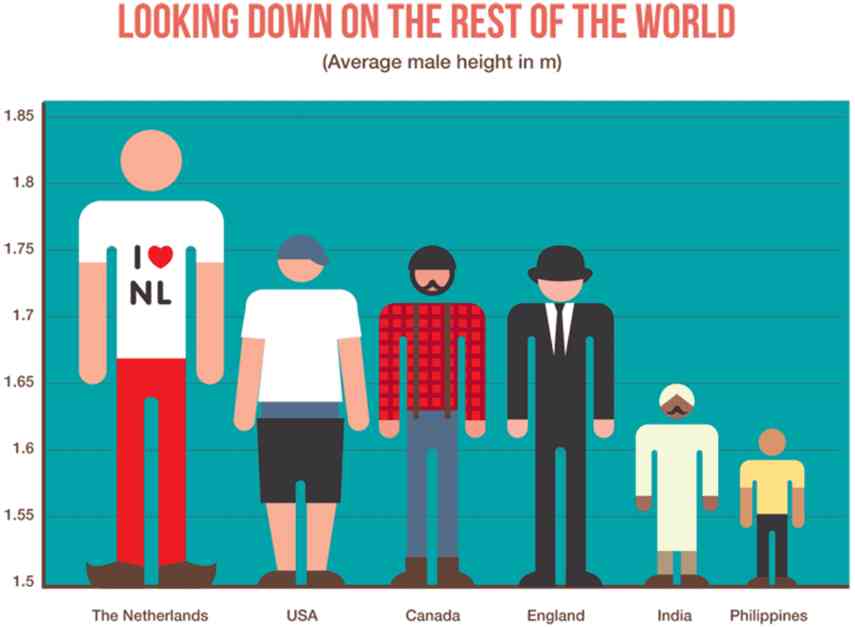Throughout history, the average height of individuals has remained relatively stable. However, over the past 200 years, there has been a significant increase in heights globally, particularly in Europe. The Netherlands, in particular, has seen a remarkable growth in average height, with Dutch men now being the tallest in the world.
While genetics play a role in determining individual heights, the overall increase in height across the Dutch population cannot be solely attributed to evolution. The improvement in living standards, including reduced mortality rates, better access to food, and overall health advancements, has contributed to the taller stature of the Dutch population.
Research has shown that nutrition plays a crucial role in determining height and overall health. Factors such as illness, stress, and manual labor can impact growth during development. Long-lasting illnesses and the loss of parents, particularly mothers, have been linked to shorter heights in individuals. This highlights the importance of a healthy environment and proper nutrition during the growth stages.
In adulthood, height can also be a complex indicator of health. Taller individuals tend to have a lower risk of death overall, but extremely tall individuals may have a higher risk of cancer-related mortality due to increased body mass and cell division. Historical populations have shown that taller individuals tended to die at younger ages, likely due to food scarcity and increased risk of infectious diseases.
Height analysis can provide valuable insights into healthcare today, especially in areas where monitoring and data collection are challenging. Understanding the factors that influence population growth or decline can help address health issues at a national level. In the Netherlands, where children are now shorter than their parents, questions arise about declining diet quality and the impact of childhood obesity on growth.
By unraveling the mysteries of height trends, we can gain a deeper understanding of health on a broader scale. The study of height not only sheds light on the past but also offers valuable insights for improving healthcare and nutrition in the present and future.






